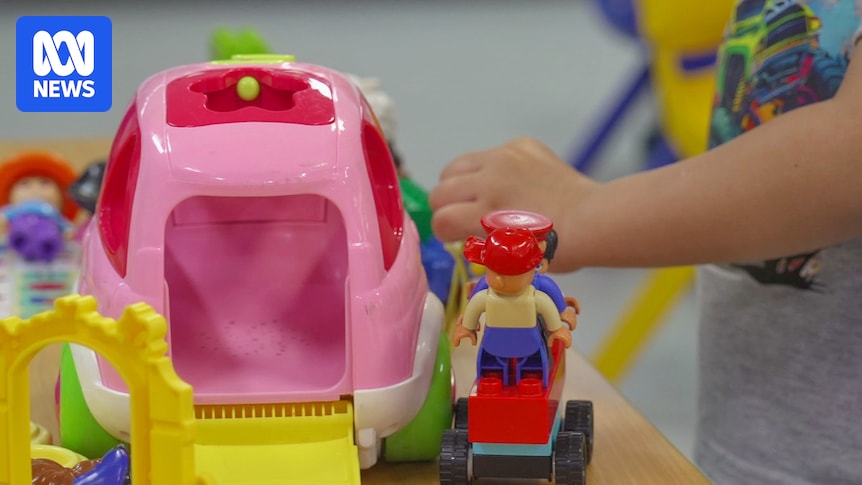
Parents across Australia may find themselves shocked as new national childcare reforms introduce basic safety measures already standard in many comparable countries. These reforms include mandatory child safety training, unannounced inspections, significant penalties for non-compliance, and a national staff register. Education Minister Jason Clare has described this reform package as the largest investment in child safety in Australian history, costing hundreds of millions of dollars. However, these changes highlight the significant regulatory gaps that Australia must address.
“I think most Australians would be very surprised to know that many of the measures are not already in place,” said Professor Gabrielle Meagher from Macquarie University. The announcement coincides with a national CCTV trial in childcare centers, expected to receive approval at a meeting of federal, state, and territory education ministers in Sydney today.
Key Reforms and Their Implications
A National Educator Register
The proposal for a national educator register is perhaps the most ambitious aspect of the reforms. This register will operate across all eight state and territory jurisdictions, providing regulators with oversight of all educators, including those with a history of misconduct. This initiative, combined with a national “working with children” check expected by the end of the year, aims to prevent situations where accused individuals move between centers undetected.
Shadow Early Learning Minister Senator Jonno Duniam emphasized the importance of implementation, stating, “This is a step in the right direction, but the real test will be the actual implementation by the Commonwealth, states, and territories of measures to protect kids in childcare.”
Mandatory Child Safety Training
The new reforms mandate child safety training for all staff, equipping educators with the skills to identify and report abuse or neglect. Education Minister Jason Clare noted that while training is already part of nursery courses at TAFE and universities, this initiative takes it further. “Everything we have here individually and collectively says this is perhaps the most important thing we can do,” he said, emphasizing the importance of identifying potential threats.
In countries like the United States, such measures have been prerequisites for receiving taxpayer funding since 2014. Professor Meagher pointed out, “The community would reasonably assume this already happens, since early learning workers and managers are required to report child safety concerns under mandatory reporting requirements in state child protection laws.”
CCTV Trial in Childcare Centers
A national trial of CCTV in up to 300 services is set to begin in October. The trial will focus on centers with existing issues, allowing regulators access to footage without mandating sector-wide implementation. While some experts and unions view this as a reactive measure, others see potential benefits.
“The even bigger question, which is about privacy, is the threat that any information that is collected with CCTV could be hacked by paedophiles for all of the nefarious reasons,” Mr. Clare remarked.
Professor Meagher expressed concerns about the rationale for widespread CCTV use, questioning its effectiveness in enhancing safety. “Who is going to monitor, analyse and store the enormous amounts of data CCTV in every service will generate?” she asked.
Challenges and Future Steps
Unannounced ‘Kindy Cop’ Inspections
Regulation and inspection have historically been lacking, with one in ten centers never receiving a quality rating. New funding will support 1,600 additional unannounced inspections, but with nearly 15,000 childcare services nationwide, the task remains daunting. The United States serves as a benchmark, requiring at least one unannounced inspection annually.
Minister Clare acknowledged the scale of the task, noting that these checks supplement state inspections. The funding aims to address widespread issues, including wage theft and staffing shortages, which have undermined confidence in the sector.
Ongoing Reforms and Industry Response
Minister Clare stated that these reforms are just the “first step.” Childcare staff, through their union, have called for closing loopholes that allow deviations from national quality standards. Additionally, there is a push for the “one plus one” staffing rule to ensure two staff members are always present with children.
The national childcare regulator has been tasked with reviewing supervision standards and reporting back by the end of the year, a move welcomed by the United Workers Union. Dr. Carolyn Smith noted, “Educators are really happy that people are finally paying attention to what they’ve already been saying and known for years, which is things need to change in the sector.”
The spotlight on child safety underscores the urgent need for reform while highlighting the considerable work still required to ensure the safety and well-being of children in Australian childcare centers.





